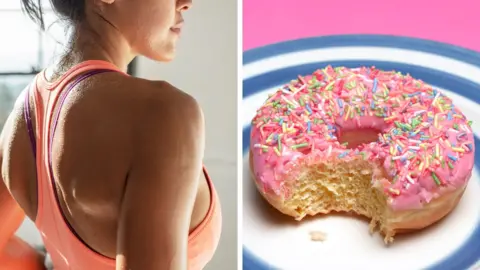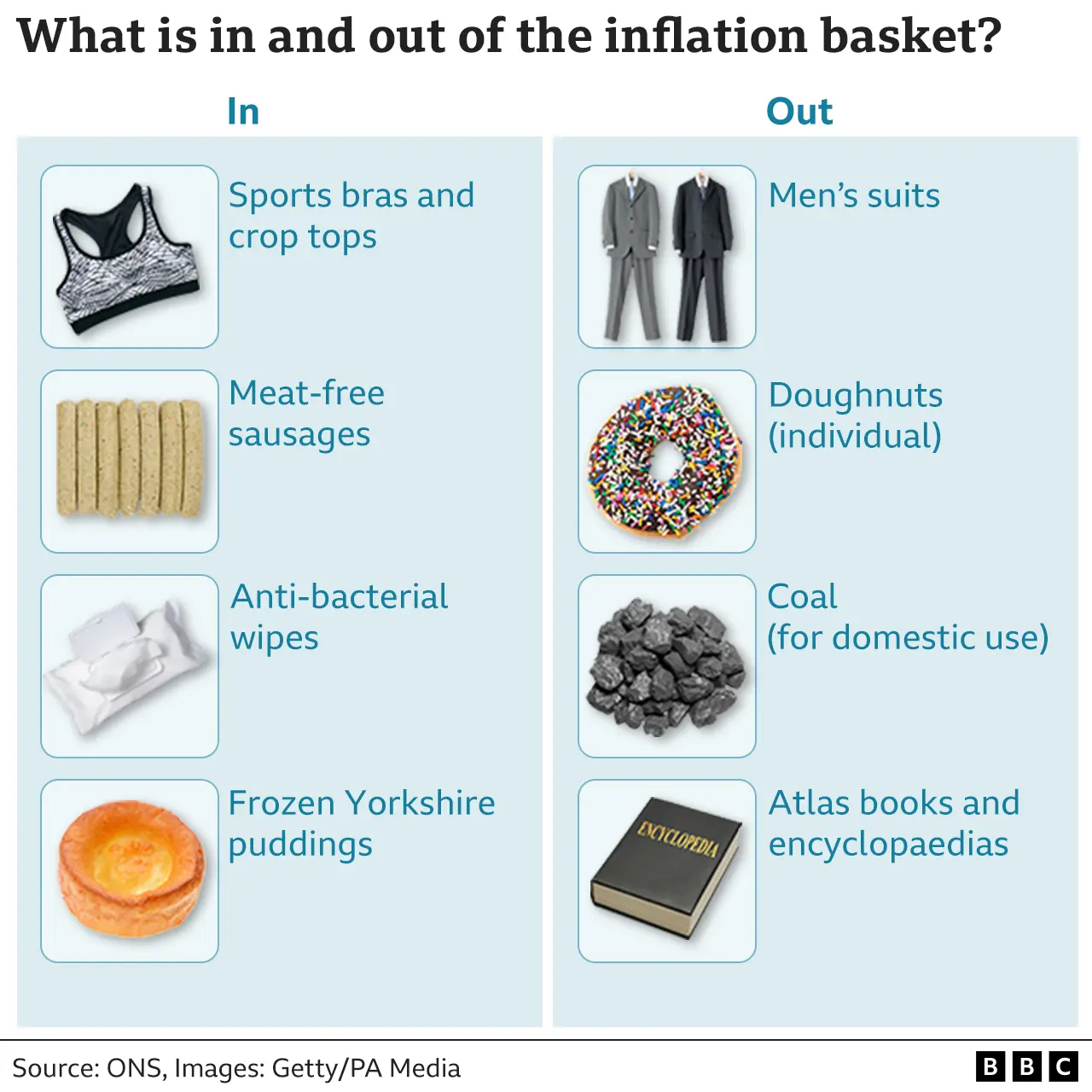Inflation: Sports bras in, doughnuts out of cost of living measure
 Getty Images
Getty ImagesHigh demand for workout gear and health-conscious vegetarian options are now being used to calculate the change in the cost of living in the UK.
Items such as tinned beans, boosted by a rise in plant-based diets, have also been added to the basket of goods used to measure prices.
The review by the Office for National Statistics also saw pet collars added.
But men's suits and doughnuts are out as homeworking shifted how we dress and snack during Covid lockdowns.
The ONS said it decided to add meat-free sausages to the basket of more than 700 goods, which is used to calculate how the cost of living is changing, to reflect a boost in demand for healthier food options.
It also said that the removal of a men's two-piece suit, and the addition of sports bras and crop tops, accounted for the fact that spending on formal clothes has been falling, as well as a "heightened awareness of fitness".

"With many people still working from home, demand for more formal clothing has continued to decrease," ONS head of economic statistics Sam Beckett said.
Since the start of the pandemic, retailers such as Boohoo and Asos have reported a boost in sales for loungewear items such as joggers or hoodies too.
In total, 19 items were added while 15 have been removed.
And although the deletion of doughnuts from the basket might suggest customers are opting for healthier snacks while working-from-home, multipacks of cakes are still included in the calculation.
Other additions to the basket of goods signalled a shift in how consumers are spending during the pandemic.
Anti-bacterial wipes, as well as craft and hobby kits for adults, were included in the basket of goods for the first time.
Pet collars for dogs and cats were also added "to reflect the growth in pet accessories linked to the increase in pet ownership more generally during the pandemic", it said.
Items such as atlas books or encyclopaedias, as well as coal, are out too.
The official statistics body pointed out that the sale of domestic coal will be banned in 2023 as part of the government's attempt to tackle climate change. Dropping the item this year protects the index from being affected by big swings in price as that headline approaches.
The publication comes as experts point out that what has been described as the cost of living crisis could be exacerbated by the conflict in Ukraine.
On Monday, research from the Resolution Foundation think tank suggested that the war could see another spike in the cost of living this autumn.
It said that inflation, which tracks how the cost of living changes over time, could reach 10% for the poorest households, whose energy and food bills make up a bigger proportion of their budgets.
Some analysts suggested on Monday that the update to the basket of goods was "out of touch with the everyday expenditure for the masses".
Myron Jobson, senior personal finance analyst at Interactive Investor, said that climbing sessions, which was added this year, "is unlikely to rank highly on the list of spending priorities among those struggling to make ends meet during the cost-of-living crisis".
"We all have our own inflation number, and it is worth keeping tabs on your spending habits to get a better idea of the goods and services that are eating most into your budget, and where you could cut back," he added.
With inflation at the highest rate seen in 30 years, the ONS's methodology has come under extra scrutiny because of the concern that product selections do not reflect purchases made by those on lower incomes.
Poverty campaigner Jack Monroe had complained that the official way inflation is calculated fail to accurately reflect this.
The ONS has said some changes were already in the pipeline to address that.From 2024, it will use a far wider range of prices from supermarket tills, which should make it easier to work out if certain brands of pasta or beans, for example, are rising faster than others.
